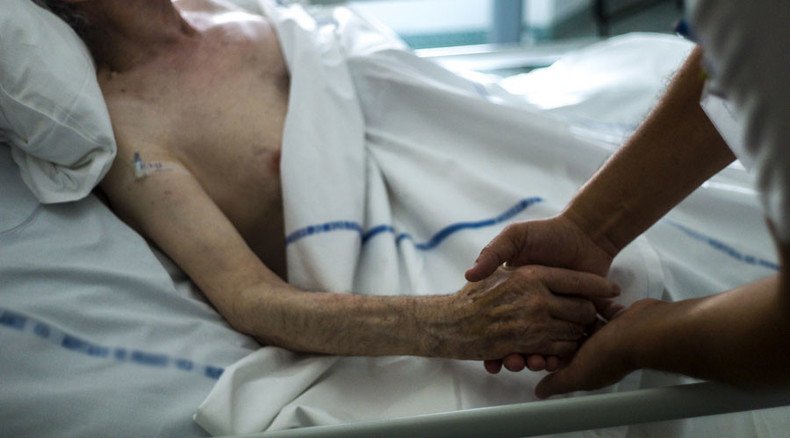Assisted Dying bill rejected by MPs

The House of Commons has rejected the Assisted Dying bill by 330 votes to 118, a majority of 212, after an emotional debate Friday afternoon.
The bill proposed giving terminally ill patients the right to request a lethal injection from doctors if their case receive approval from two doctors and a judge.
But the controversial bill, which had been criticized by both the church and campaigners, was voted down on its second reading.
The free vote was the first time the Commons had voted on the issue since 1997.
Throughout the debate, MPs spoke about their personal experiences and used anecdotal evidence to make their case. Many arrived in the chamber saying they were not sure how they would vote.
The bill was based on Oregon law, which opponents said had led to a rise in assisted suicides in the US state since the law was introduced.
MP for Wolverhampton South West Rob Marris told the House that while he could understand why sick individuals found comfort in assisted dying, he could not say whether he would use the service himself.
“I don’t know if I had a terminal illness with a prognosis of less than six months if I would.
“But I and many other people would find it comforting to know that the choice is available – to have the option of choosing a dignified and peaceful death at a time and place and in a manner of my own choosing, at my own hand.
“I think there’s been a trend in our society, which I support, in many cases that if the exercise of a choice does not harm others in a free society, we should allow that choice.”
Here's the press release from @CareNotKilling on massive rejection of #AssistedDying in Britain pic.twitter.com/ywgo57c4yD
— Tim Montgomerie ن (@montie) September 11, 2015Other MPs in favor included Labour’s George Howarth, who said it was “perfectly rational choice for people to say they do not want to be a burden on family and friends.”
Labour MP Jim Fitzpatrick said his extensive work with asbestos gloves during his time in the emergency services made him fear a death by mesothelioma. “If that’s what lies in store for me, I want to control my own death.”
Opposing voices included Tory MP Caroline Spelman, who argued people should not be made to feel they are a burden on their family.
Her views were echoed by Labour’s Lyn Brown, who said elderly people could be “emotionally blackmailed” to end their lives.
Outside the Commons, the response to the bill has been equally split.
CofE issues statement from Bishop of Carlisle, following MPs vote against Assisted Dying Bill https://t.co/qnLVulaHQVpic.twitter.com/fg7FGOSZGT
— churchstate (@churchstate) September 11, 2015The Archbishop of Canterbury said assisted dying was one of the “biggest dilemmas of our time.” He said legalizing it could be a “slippery slope” for other moral issues.
The Church of England welcomed the vote, saying that passing the bill could have led to an “increased risk” to vulnerable people.
But Dr. Jonathan Romain, chairman of Interfaith Leaders for Dignity in Dying, argued in an open letter in the Telegraph: “There is nothing sacred about suffering, nothing holy about agony, and individuals should not be obliged to endure it.”
Former director of public prosecutions Keir Starmer said the law needs to be changed to “deal with the problem of people wanting to end their lives in this country, medically assisted, rather than traipse off to Switzerland.”
After the vote, MPs tweeted about their choices.
The Assisted Dying Bill has been defeated in the House of Commons. It will not progress further. Sadly many issues remain outstanding. #SNP
— Dr Paul Monaghan MP (@_PaulMonaghan) September 11, 2015Sat throughout debate on #assisteddying & still undecided. Voted for the Bill to allow further discussion on such a vitally important issue
— Lilian Greenwood (@LilianGreenwood) September 11, 2015Disappointed with result on Assisted Dying. I supported because I believe in freedom of choice & thought the bill deserved further scrutiny.
— Peter Heaton-JonesMP (@PeterNorthDevon) September 11, 2015











